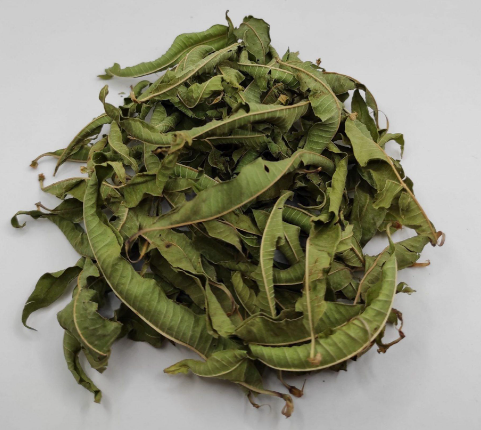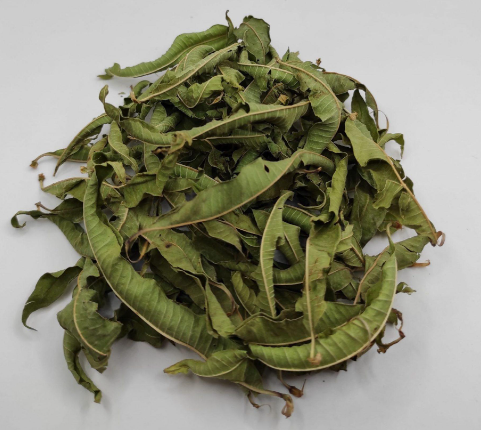The Refreshing Power of Lemon Verbena: Unveiling Its Health Benefits, Culinary Versatility, and Historical Significance
Welcome to the enchanting world of lemon verbena (Aloysia citrodora), a herb that captures the essence of summer with its vibrant, citrusy aroma. If you’ve ever caught a whiff of its fragrant leaves, you know there’s something truly special about this herb. Beyond its delightful scent and flavor, lemon verbena has a rich history steeped in tradition, a multitude of health benefits, and a versatility that makes it an invaluable ingredient in both cooking and natural remedies.

In this blog, we’ll embark on a journey through the fascinating history of lemon verbena, explore its myriad health benefits as highlighted in Dr. Bharat Aggarwal’s Healing Spices, and discover innovative culinary uses that will inspire you to incorporate this herb into your daily life. Prepare to be captivated by the many facets of lemon verbena!
A Historical Tapestry: The Story of Lemon Verbena
Lemon verbena’s origins trace back to South America, particularly Argentina and Peru. Indigenous peoples have long recognized the herb’s medicinal properties, using it to soothe ailments and enhance well-being. When European explorers discovered lemon verbena in the 17th century, they were enchanted by its aroma and flavor. The plant was soon introduced to Europe, where it gained popularity among herbalists and chefs alike.
In France, lemon verbena became a symbol of elegance, often used in teas, desserts, and even perfumery. Its association with refinement can be seen in its inclusion in the famous French herbal tea blend known as “tisane.” Lemon verbena’s presence in European gardens became a testament to its allure, as it was cultivated not only for its beauty but also for its practical uses.
Throughout history, lemon verbena has also played a role in traditional medicine. Its calming properties made it a favored remedy for anxiety and digestive issues. As the world has evolved, so too has the appreciation for lemon verbena, transitioning from a traditional herbal remedy to a modern culinary star.
Culinary Uses: Elevating Flavors with Lemon Verbena
Lemon verbena is a culinary gem that can elevate a variety of dishes with its bright, citrusy notes. Here are some creative ways to incorporate this herb into your cooking:
- Herbal Teas:
One of the most popular uses of lemon verbena is in herbal teas. Simply steep fresh or dried leaves in hot water for a refreshing drink that soothes the mind and aids digestion. You can enhance the tea with honey or mix it with other herbs like mint or chamomile. - Flavorful Marinades:
Lemon verbena makes an excellent addition to marinades for meats, fish, and vegetables. Its citrus flavor enhances the natural tastes of grilled or roasted dishes, providing a refreshing twist. Combine lemon verbena with olive oil, garlic, and citrus juice for a vibrant marinade. - Desserts and Pastries:
Infuse lemon verbena into creams, custards, or syrups to add a fragrant lemon flavor to your desserts. It pairs beautifully with fruits, lending its unique aroma to cakes, sorbets, and fruit salads. Try making a lemon verbena-infused panna cotta for an elegant finish to your meal. - Savory Dishes:
This herb can also shine in savory dishes. Add finely chopped lemon verbena leaves to sauces, risottos, or grain salads for a zesty kick. It works particularly well with chicken, fish, and roasted vegetables, enhancing their flavors without overpowering them. - Salads and Dressings:
Incorporate lemon verbena into dressings or sprinkle it over salads to elevate their taste. A simple vinaigrette with lemon verbena, olive oil, and vinegar can brighten up any salad, adding a fresh herbal note.
Health Benefits: A Treasure Trove of Wellness
As highlighted in Dr. Bharat Aggarwal’s Healing Spices, lemon verbena is not just a culinary delight; it is also packed with health benefits. Let’s explore some of the notable advantages of incorporating lemon verbena into your diet:
- Digestive Health:
Lemon verbena has been traditionally used to alleviate digestive issues, including bloating, gas, and indigestion. Its antispasmodic properties can help soothe the gastrointestinal tract, making it a gentle remedy for various digestive complaints.
- Reference: Aggarwal, B. B., & Harikumar, K. B. (2009). “Potential of herbal remedies in the treatment of digestive disorders.” Journal of Ethnopharmacology.
- Anti-Inflammatory Properties:
Rich in antioxidants, lemon verbena helps combat oxidative stress and inflammation in the body. Its ability to reduce inflammation makes it beneficial for individuals suffering from chronic inflammatory conditions.
- Reference: Aggarwal, B. B., & Sung, B. (2009). “The anti-inflammatory effects of herbal compounds.” Journal of Medicinal Food.
- Stress Relief and Relaxation:
The calming aroma of lemon verbena is known to promote relaxation and reduce anxiety. It can be used in aromatherapy to create a soothing environment and help alleviate stress.
- Reference: Kocot, J., et al. (2017). “Aromatic plants in the prevention of anxiety and stress.” Journal of Clinical Medicine.
- Antimicrobial Activity:
Lemon verbena has demonstrated antimicrobial properties, helping to inhibit the growth of certain bacteria and fungi. This makes it a valuable herb for supporting immune health.
- Reference: Silva, M. C. C., et al. (2014). “Chemical composition and antibacterial activity of lemon verbena.” International Journal of Food Microbiology.
- Weight Management Support:
Incorporating lemon verbena into your diet may aid in weight management. Its potential to improve digestion and reduce cravings makes it a helpful addition to a healthy lifestyle.
- Reference: Kwon, Y. I., & Apostolidis, E. (2014). “Effects of herbal extracts on weight management.” Plant Foods for Human Nutrition.
- Cognitive Benefits:
Emerging research suggests that lemon verbena may have neuroprotective effects, potentially enhancing cognitive function and supporting overall brain health.
- Reference: Han, Y., et al. (2018). “Neuroprotective effects of lemon verbena on cognitive dysfunction.” Behavioral Brain Research.
Practical Tips for Using Lemon Verbena
To make the most of lemon verbena, consider the following tips:
- Fresh vs. Dried: Fresh lemon verbena leaves have a brighter flavor, while dried leaves can still impart a pleasant aroma. Use fresh leaves when available for maximum potency.
- Infusion: For teas or desserts, steep lemon verbena leaves in hot water or cream to extract their flavor. The infusion can then be strained and used in various recipes.
- Storage: Store fresh lemon verbena in the refrigerator, wrapped in a damp paper towel to keep it fresh. Dried leaves should be kept in an airtight container away from light and heat.
- Pairing with Other Ingredients: Lemon verbena pairs well with other herbs and spices such as mint, thyme, and basil. Experiment with combinations to create unique flavor profiles.
Conclusion: Embrace the Zesty Wonders of Lemon Verbena
In conclusion, lemon verbena is a remarkable herb that offers a wealth of flavor, health benefits, and historical significance. From its origins in South America to its esteemed status in kitchens and herbal medicine cabinets worldwide, lemon verbena has truly stood the test of time.
By incorporating lemon verbena into your culinary creations, you not only enhance the flavors of your dishes but also tap into its numerous health benefits, from digestive support to stress relief. Whether you’re enjoying a soothing cup of lemon verbena tea, using it to elevate your marinades, or infusing it into desserts, this herb invites you to embrace its refreshing essence.
So, let the vibrant aroma of lemon verbena inspire your cooking, and enjoy the delightful journey it brings to your table and your well-being. Embrace the zesty wonders of lemon verbena, and discover how this enchanting herb can enhance your life in both flavor and health!

